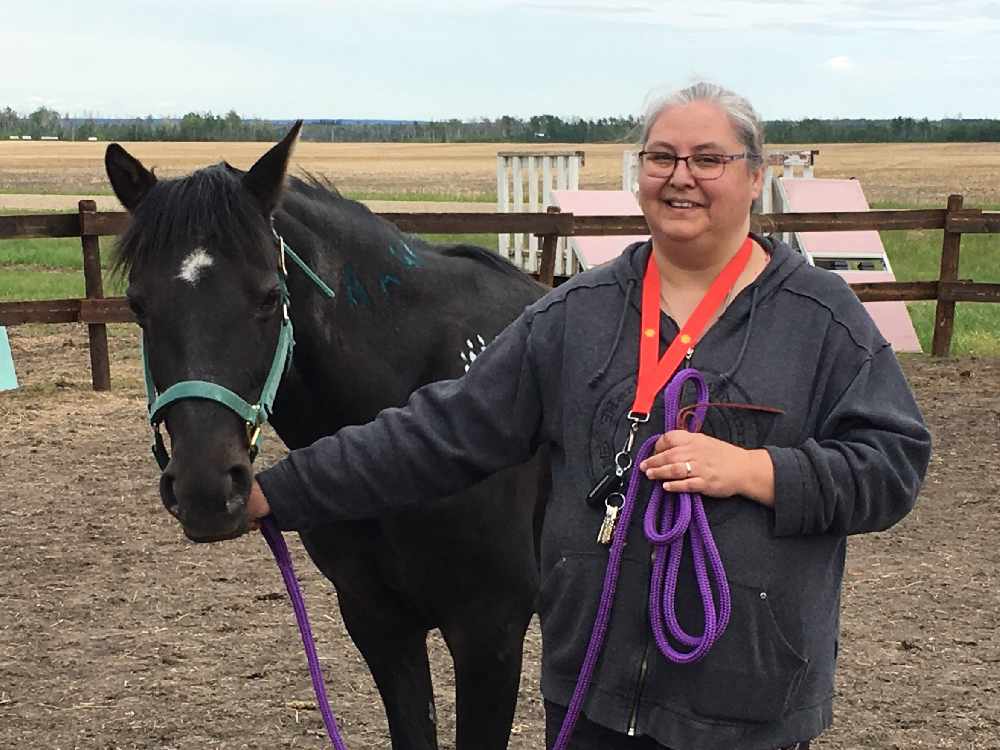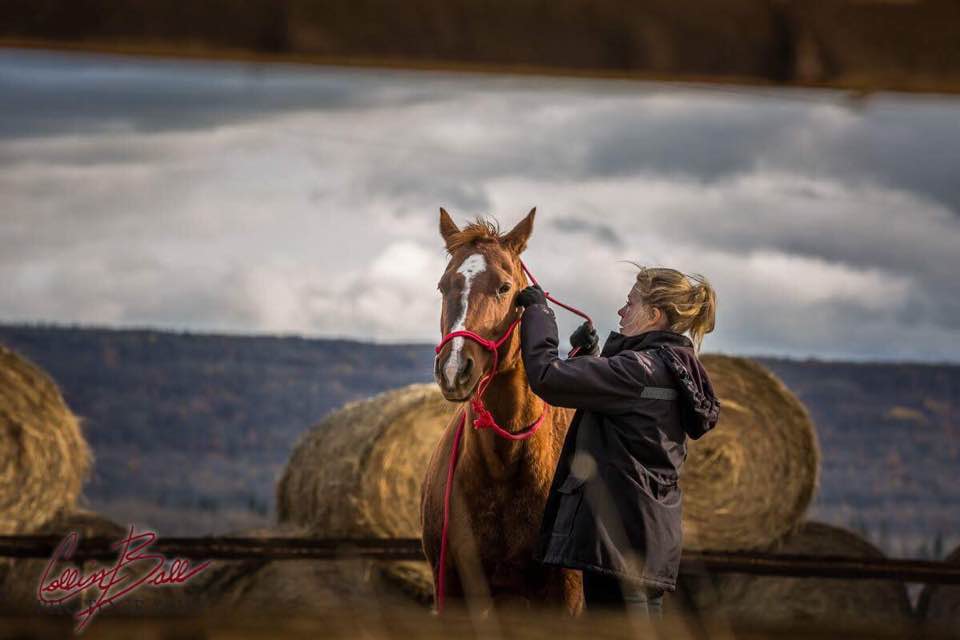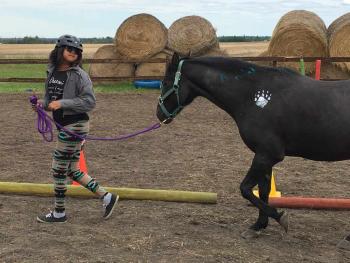Image Caption
By Paula E. Kirman
Windspeaker.com Contributor
A woman is making it her mission to introduce a program intended to help Indigenous youth at risk, women, and people with substance abuse issues, and the program is starting in Horse Lake First Nation.
Brianne Hingley offers an Equine Assisted Learning program in Baytree, Alta., which is located about 20 km east of Dawson Creek, B.C. Equine Assisted Learning is a skill development program using horses as teachers.
Hingley is not only an advocate of the program, she also lectures in Canada and the U.S on the program model and form of delivery set out by Tamara MacKinnon, who is associated with the facility where Hingley received her certification, Equine Connection, located in Carsland, Alta.

(Above) Katherine Horseman with Flicka
The program is based on research gathered in partnership with the universities of Regina and Calgary.
One day, Hingley was driving by Horse Lake First Nation near Hythe, Alta. and the name of the place struck her because of the horse connection. She did some research on the area and came across a video. In it was a woman named Katherine Horseman, the ASETS (Aboriginal Skills and Employment Training Strategy) administrator, who said 'We are all one. We are all from one mother.'
“When I saw Katherine say that, I knew right away I had to go and see if they would be open to taking this program on and having some of their youth do it.”
Hingley held an Authentic You weekend for women on June 2 and June 3 and Horseman attended with her daughter Aqua.
“The focus of the weekend is on us and how we relate to others, and how our interior leadership and confidence should be at the forefront of everything we do,” Hingley explained.
“It taught us more about ourselves,” Horseman told Windspeaker.com.
“For example, the horse touched (Aqua) on the neck and we were told this means voice. I said this is truthful as my daughter needs to use her voice more; she has difficulty getting her message across.”
Hingley explained the horses do the teaching.
“In the Aboriginal culture, horses are truth-tellers and offer safe touch. Often, youth who come here may never experience safe touch anywhere else. It's very powerful for the horse to offer them something like that. Even a therapist or a teacher cannot offer them that.”
Over the next three years, Hingley would like to mentor program facilitators and eventually would like to see Horse Lake have its own Equine Assisted Learning facility.
“There's always more kids, more addictions, more people who can benefit from what the horses offer.”
Horseman agreed.
“This program is an excellent program for our woman, youth, and those facing addictions. I believe it would benefit our community. The program coming to Horse Lake will last 12 weeks (once a week). It will give our people a chance to get to know not only one another, but themselves as well.”
Hingley believes that Horse Lake can be on the forefront of this kind of program.
“Getting back to the horses is only natural for everybody. When a horse comes up and picks up, smells you, touches you, that feels really good. The horse doesn't judge.”
For more information about Hingley's program, visit her website: http://www.forceactionindevelopment.com

(Above) Brianne Hingley with horse Caddy

